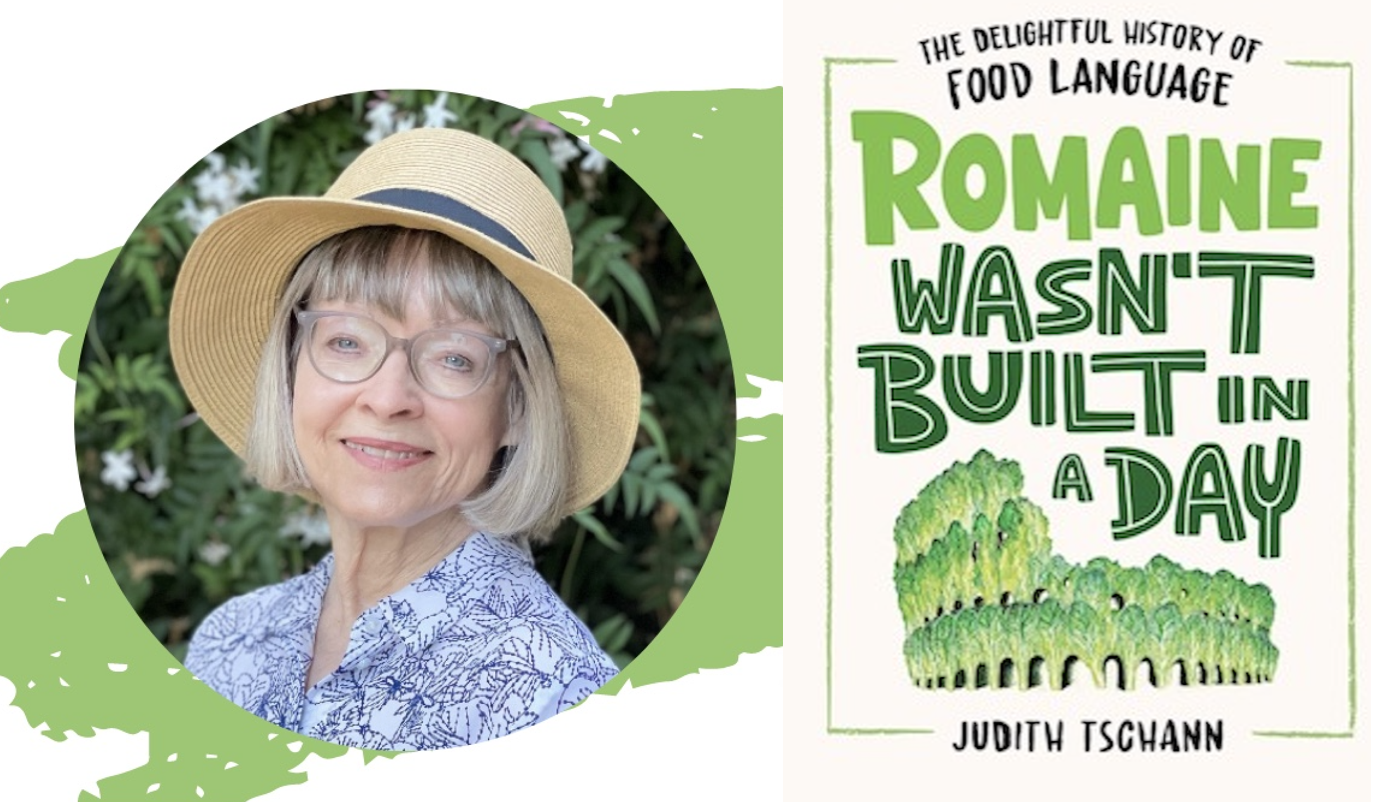The Creative Writing Department of the University of Redlands, with support from the English Department and Johnston Center for Integrative Studies hosted Judith Tschann, Redlands professor emerita and author of “Romaine Wasn’t Built in a Day: The Delightful History of Food Language,” for the annual Visiting Writers Series. Tschann served as chair of the English Department for five years and taught an array of courses on topics varying from Latin tutorials to Homer in Translation to Chaucer’s Canterbury Tales. She was also a recipient of the National Endowment for the Humanities Fellowship and Mortarboard Professor of the Year.
Tschann shared more information about her book and her writing process with Bulldog Bites.
Bulldog Bites: What inspired you to write “Romaine Wasn't Built in a Day?”
Judith Tschann: In some ways the pandemic inspired the work, because I was reminded daily of missing the pleasure that comes from talking and eating with a noisy group around a table. (I grew up in a family of eight and enjoyed noisy meals). Writing about food and language was not only a consolation but a source of joy.
The old family Funk and Wagnall’s dictionary inspired me as a kid. I thought it was a weirdly wonderful treasure trove. The course work I did as a student, and the courses I taught as a professor also inspired me to write this book. In graduate school I specialized in Old and Middle English literature and language, and as a professor teaching those subjects and various topics in linguistics, I amassed a pile of notes on interesting etymologies, especially of food words. I also investigated the symbolic importance of food in the literary works I taught over the years, from Chaucer’s “Canterbury Tales” to Salmon Rushdie’s “Midnight’s Children.” I was inspired by medieval cookbooks and by my study of a thirteenth-century trilingual manuscript. Most importantly, I was inspired and encouraged by friends, family, and a wonderful agent to pull the notes together into a book.
BB: What did your writing process look like?
JT: Sometimes: Put tushy on the cushy and fingers on the keyboard. Stare at the screen. Refill coffee cup. Stare at the screen. Do a crossword puzzle, get up and peer longingly into the pantry.
But often the process involved being happily caught up in stories about (e.g.) the role of coffee in the invention of the webcam, or the influence of Joyce’s “Finnegan’s Wake” on physicist Gell-Mann’s choice of the word quark. Or getting caught in a web of words that spins out from the same source, like sass, sassy, saucy, salsa, salad, salami, sausage, and salary, all coming from Latin sal, “salt.” Etymology feels endless, because there’s always another line of inquiry to pursue, more historical context to discover, another fat book full of info beckoning. And that’s great.
BB: What is your favorite memory while writing this book?
JT: Many great memories: The birth of my granddaughter. Talking with my son about visual puns. Talking with my daughter about metaphor and the language of physics. Generous friends listening and giving advice. Having surgery during the copyediting process—alter the body, amend the book.
BB: What surprised you the most when writing your book—either about the people you met, the food you tried, or the history you learned?
JT: Writing the book made me think a lot about food textures. I was a fussy eater as a kid, and what really bothered me was slippery food, that slithery feel in the mouth. I thought noodles were revolting. Mac and cheese? Gross. (I also didn’t like milk or cheese.) I got over these dislikes for the most part as I grew up, though I still don’t like milk, and I came to love pasta, ramen, pho, and noodles of every sort. Of course, this has a lot to do with sauces and spices and what company the noodles keep, but I even love the slippery tactile sense. Whether crunchy, chewy, brittle, explode-when-you-bite-it, or smooth, silky, melt-in-the-mouth, oily, sometimes even slimy—these and other textures seem to me now a delicious part of taste.
BB: Do you have any advice for students at the U of R or for future writers?
JT: These old hortatory tidbits have helped me (but I can’t claim to follow them all, or all the time). Aspiring writers: Keep going. Write every day, if you can. Read voraciously. Take as many classes and workshops as you can. Join a writers’ group. Listen to criticism. Try to find something useful in it, or let it go. Practice being a helpful critic. Revise your work again and again. Write because (according to writing instructors) it sharpens thinking and leads to discovery. Or write because you enjoy it. Don’t forget the joy.
BB: Is there anything else you would like to share?
JT: I’d like to say thank you to all my students of 42 years (so many years, so many wonderful students). Thank you for keeping me on my toes and making me question my assumptions and look at issues in different ways. You taught me a lot. Keep in touch!
To learn more about the U of R Visiting Writer Series, click here.






